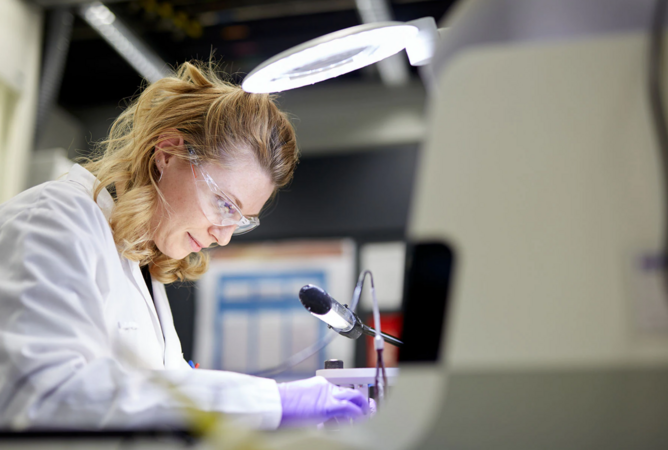Philip Morris: Smoke-free vision and employees’ wellbeing

Leading international tobacco company Philip Morris International’s Sustainability Materiality Report 2021, which was published this February 2022, divides the company’s social and environmental impacts into two distinct categories. They are those that derive from PMI’s products, including “product health impacts,” “sales, marketing, and consumer communications,” and “wellness and healthcare”, and those that derive from its business activities.
PMI’s ultimate goal is centred around moving the world’s population away from cigarettes, permanently.
The company performed a structured five-step assessment, starting with identifying ESG topics, gathering both internal and external stakeholder perspectives, assessing both the outward and then inward impacts, as well as defining the most material environmental, social, and governance (ESG) topics.
According to the report, PMI’s “product health impact” has the biggest risks when it comes to reputation, regulation, and revenue growth; it does, however, carry the greatest opportunities. Combined with “wellness and healthcare”, which was included as a new topic in the 2021 assessment, the two resulted in a new goal for the company.
Aiming to transition into a broader lifestyle and consumer wellness company, PMI plans to generate revenues from tobacco-free or nicotine-free products. At the same time, the company also focuses on wellness and wellbeing from the inside.
Breakthrough in wellness and health impact
Yulia O'Mahony started her tenure as PMI’s Global Head of Health & Resilience just a year ago as the role was introduced in the middle of the pandemic.
“It was a clear signal of the importance of health and wellbeing of employees at PMI for the future, which the COVID pandemic brought into sharp focus,” says O’Mahony. “One of three pillars of our inclusion and diversity strategy is to create an environment for sustainable high performance.”
In terms of benefits, PMI has long been boasting of its reputation as a good employer. However, according to O’Mahony, the next imminent step is to understand what should be the balance of global versus local activities, because wellbeing is a lot more than just benefits.
“We want to look at wellbeing in a very holistic way,” she says. “It includes how we work within the team, how we can build better relationships so that they can impact positively on people's wellbeing, and how we can support people to lead healthy lifestyles, and, ultimately, also provide opportunities for self-fulfilment.”
O’Mahony adds that supporting mental health is an incredibly important pillar of wellbeing, as well as removing the stigma from conversations around mental health.
“What we want to pilot this year is what we call the mental health for all training. It's the education about mental health for everyone, providing a basic understanding of what mental health is, what the common problems are, how you can seek help, how you can look after yourself, your energy levels and resilience, but also how you can offer support,” she says.
By setting these basics of psychological safety and mental health literacy, the company would be able to focus on a preventative approach. The solution to wellbeing challenges is not, however, a silver bullet.
“It just depends on the cultural context, on what would resonate most,” says O’Mahony. “We have a genuine ambition to make the environment better for people. It's also the understanding of what the key drivers of wellbeing are so that we can focus on what would actually make a difference.”
Based on the company’s survey across six markets to understand what the root causes of poor and good wellbeing were last year, it was found that one of the key drivers of wellbeing was the workload.
“Behind workload, though, is not the number of hours but the sense of control, the sense of people's agency and psychological safety. People who felt that their deadlines were manageable, they understood exactly what they needed to deliver when, felt in control of their diaries and had a much better wellbeing,” says O’Mahony. “Also, they felt that they had a reasonable balance between work and their commitments outside. So it wasn't about a kind of a rigid number of hours people spent, the number of emails they sent - it was the sense of control that made the biggest difference.”

Creating an inclusive workspace
The sustainability materiality assessment, which was conducted in the second half of last year, identified that the “human capital development” topic is expected to gain momentum in the future despite being excluded from the list of most material topics, alongside “biodiversity” and “water”.
According to Silke Muenster, PMI’s Chief Diversity Officer, there are two steps in building and driving an exclusive culture in terms of human capital development.
“Creating global employee resource groups, communities where people feel they have this psychologically safe environment for them to discuss their problems and raise concerns, is a very important element of our strategy going forward,” says Muenster. “The second one is leveraging talent diversity.”
“Psychological safety is actually the basis to make a culture inclusive,” says Muenster. “You have to be careful when you measure inclusion that you cover the whole spectrum. You have these very individual elements about everybody being able to bring their uniqueness to work, but then you also have a more organisational area about collaboration and fairness, which you also need in order to create an inclusive environment.”
Muenster is adamant that teams with psychological safety are much more effective teams. The company is working towards its smoke-free vision, investing more than USD US$9bn to develop more smoke-free products for adults on top of its existing portfolio, including heat-not-burn, vapour and oral nicotine products. In order to achieve the company’s transformation, more innovations need formulating.
“In order to drive this innovation, you clearly need psychological safety. So there's a big push from our side currently to drive this psychological safety,” says Muenster. “We are currently piloting a way to measure inclusion. I think because inclusion is so broad, it's really difficult to capture all the different elements, but we are actually running a pilot with regards to inclusion.”
O’Mahony believes that role modelling is part of the drive. According to her, in a team where the manager was effectively role modelling and showing good behaviours in terms of personal boundaries, recharging, and looking after themselves, both the engagement and wellbeing scores were much higher.
“Having open conversations about mental health was very important as well,” says O’Mahony in building psychological safety at the corporate level. “Everybody needs to get involved. Everybody needs to have a much better understanding of mental health, not just line managers.”
More than two years ago, Muenster found the company struggling to recruit more women into its array of employees. The company then formulated the answer, which was mainly revolving around. creating accountability by setting individual objectives for leaders. To tackle this, the company pursued accreditation to ensure potential candidates and was able to leverage on the fact that PMI was the first company globally certified for equal salary certification in 2019.
“Having this equal salary certification is helping us to recruit women,” says Muenster. “We have made huge progress when it comes to female representation. We had declared that we want to have women representing 40% of management roles by 2022, and we are super close. We then made 2 percentage points’ progress, just on last year, which was really huge.”
The company also saw huge progress when it comes to senior women roles, which is currently above 25% after scoring 18% at the same time in 2020. Based on the current trend, Muenster is confident that the company will achieve 40% female representation in management roles this year.
However, PMI’s ambition goes beyond women's representation, but also all underrepresented groups. To reach this goal, Muenster and her team threads carefully while considering all the elements related especially to employees’ wellbeing.






